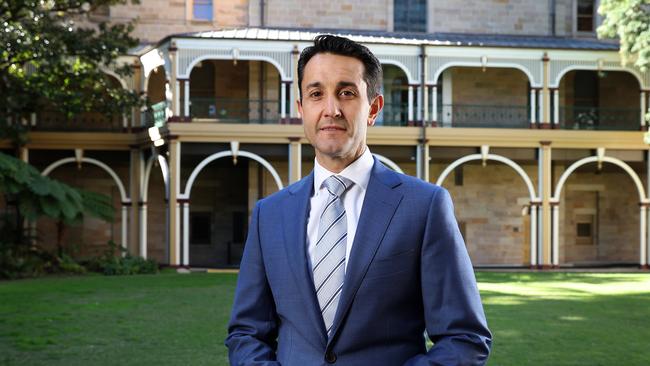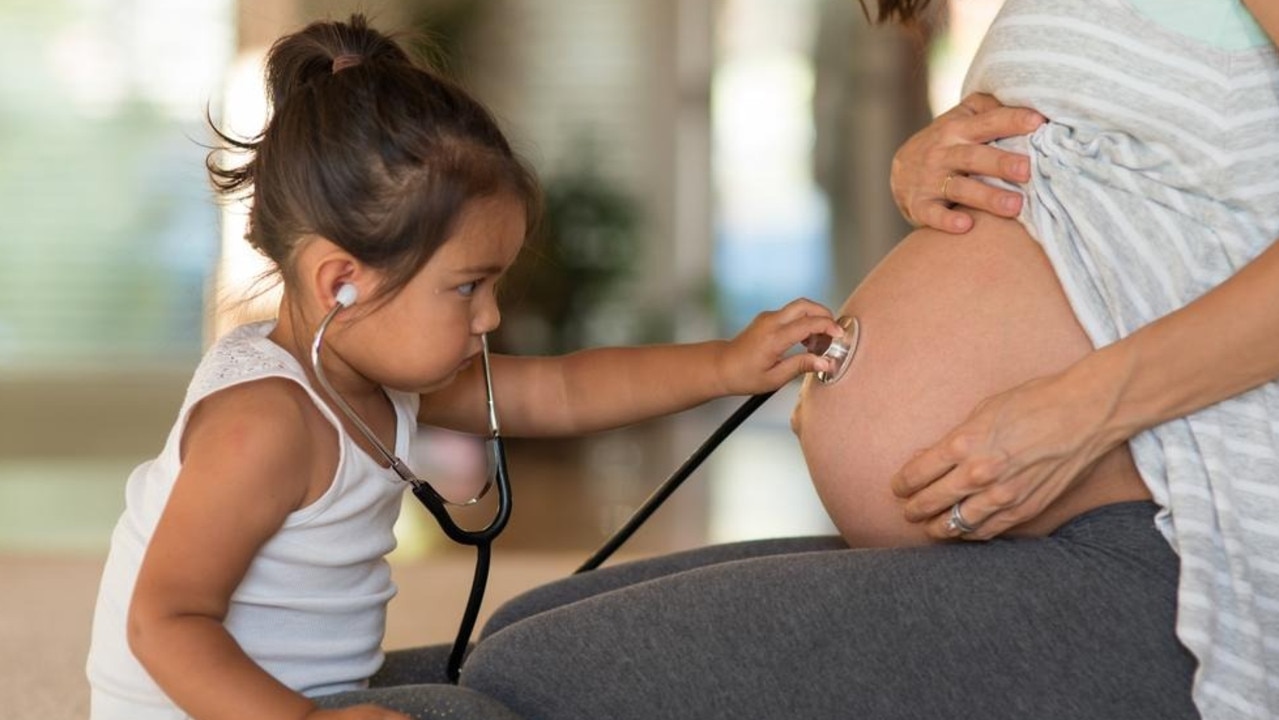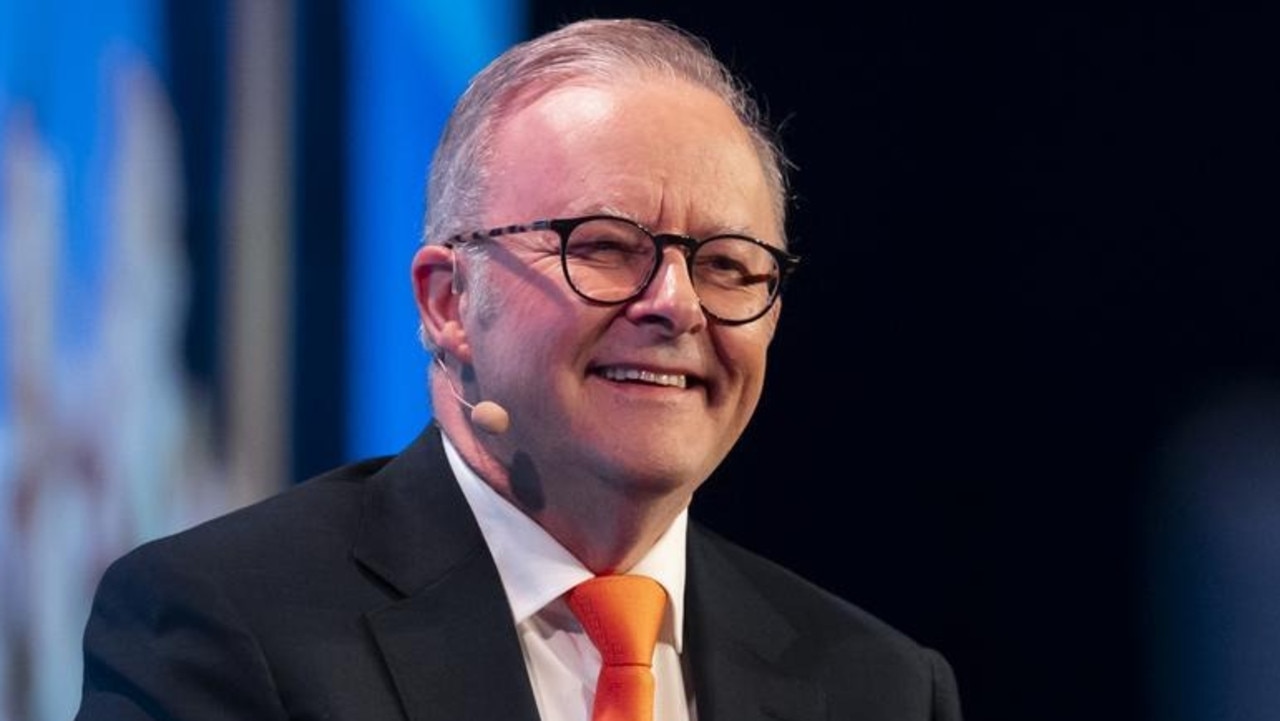Queensland Labor ramps up attacks as LNP figures grow anxious about David Crisafulli’s soft-target strategy
David Crisafulli is odds on to become Queensland’s next premier but continues to hold back key policy details.

Senior figures inside Queensland’s Liberal National Party are growing anxious that David Crisafulli’s small-target strategy is about to implode as the leader continues to hold back key policy details before October’s state election.
Crisafulli is odds-on to become Queensland’s next premier and fracture the wall-to-wall Labor governments across mainland Australia on October 26.
And after a decade in the political wilderness, his party is as confident of victory as it has been since 2012, when the LNP recorded a monster 13.7 per cent statewide swing and won 78 of the then-89 seats in the one-chamber parliament.
Defeat would be catastrophic for the LNP, its fourth consecutive loss that would consign the party to a grim record of one win at the past 13 state elections.
With majority government in tantalising reach and the start of the election campaign weeks away, senior party figures and opposition MPs are getting jittery about the risks of Crisafulli’s policy-soft approach.
And Labor has seized on it, with Premier Steven Miles and his cabinet launching daily attacks that the LNP has no plans for government.
One senior LNP figure said it was working, with Crisafulli “terrified” of losing and deliberately not taking positions on issues that could open him up to criticism.
“They are so close to the end of the race, they don’t want to trip over,” they said.
“But you’ve got to be bold – this is Queensland. People want to know what you are going to do. Saying ‘we aren’t them’ is generally not enough and you might end up at the finish line without a mandate.”
The government is circling the drain with successive published polls predicting a bruising defeat. The latest YouGov poll suggested the Premier’s $3.7bn in cost-of-living giveaways had failed to win over voters, with the LNP vote surging 14 points clear of Labor, 57 to 43 per cent after preferences. The government retreated further into its panicked policy agenda this week, announcing a daily petrol price cap and plan to open state-owned petrol stations, which was widely panned by economists, industry groups and the state opposition.
Miles and his deputy, Cameron Dick, have pleaded with voters not to judge the government on its three-term record. It knows Labor’s only real chance of holding on is to ratchet up its attacks on Crisafulli’s small target strategy, as Scott Morrison did to Anthony Albanese before the 2022 federal election.
“In October, Queenslanders will have a choice,” Miles said this week. “A choice between my clear and detailed vision for Queensland and an opposition who are unknown and who are determined to stay that way”.
Crisafulli’s disciplined and unrelenting assault on Labor’s failures to address crime rates, a deepening housing crisis and struggling public hospital system over the past decade has had impact.
But the blowtorch of an election campaign is about to turn on the 45-year-old Opposition Leader who has so far done little to articulate how he will fulfil promises of “fewer ambulances ramped, fewer victims of crime, more homes built faster and living costs driven-down”.
Crisafulli is focused on winning. His contact with the media is tightly managed, only talking about things he wants to and he’s reluctant to wade into ideological issues that traditionally fire up the LNP-base.
As another LNP source told The Australian: “People are worried that he is so good at handling the daily media cycle, they don’t actually know what a Crisafulli government will deliver or what it will stand for.”
The Australian approached Crisafulli and 10 members of his frontbench to speak about plans for their policy areas. All declined interviews or did not respond to our requests. Instead Crisafulli’s media team responded to written questions with quotes attributable to various frontbenchers.
Crisafulli’s lack of real agenda was evident in June when he committed to adopting Labor’s budget in full before he even knew what was in it.
He pledged to honour every dollar Labor had budgeted for infrastructure projects and social services over the four-year forward estimates.
The LNP’s post 2020 election review – written by senator Paul Scarr and former state Liberal leader Mark McCardle – recommended greater efforts be made to “sharpen policy differences with Labor”, particularly on economic management.
However there has been a decisive absence of detail on how the LNP plans to achieve its promise of lowering taxes and tackling the state’s mounting debt, due to reach $172bn by mid-2028.
In a written response, treasury spokesman David Janetzki said debt would be lowered “with properly-costed projects delivered on-time and on-budget” and the reinstatement of the axed productivity commission.
Then there are the cost-of-living landmines Labor has craftily planted for an incoming LNP government. A trial to slash public transport fares to a flat 50c fare will expire three months after the state election, meaning a new LNP government would have to extend the giveaway or jack fares back up for commuters. It is yet to commit to a position.
The LNP will not say if it would offer energy rebates in next year’s budget – which the Labor government has handed out each year since 2017 – only saying that it supported this year’s $1000 giveaway.
There is also no position on Olympic venues for the 2032 Brisbane Games, other than a promise of another review and no new stadium, and there has been scant mention of how the LNP plans to lift literacy and numeracy outcomes in schools.
Asked if the LNP planned to change or overhaul the school curriculum, education spokesman Christian Rowan said in a written response that the party would follow the national curriculum, but also “declutter” it. He did not say how.
There is a similar lack of precision in LNP plans to improve the public health system, despite it being at the centre of Crisafulli’s attacks on the government for the past four years. His fix is to roll out real-time hospital data within 100 days of the election and “put doctors and nurses back in charge of their hospitals”.
He has pledged to set targets on ambulance ramping but is yet to say what they are and there has been no specific promise to bring on extra hospital beds, which is what doctors say is needed to free up space.
Asked how many hospital beds an LNP government would build in the next four years, health spokeswoman Ros Bates said in a written statement that it would “deliver the capacity in our hospitals to meet demand in our emergency departments and for elective surgery”.
To the chagrin of their federal colleagues, the state LNP in April voted in favour of Labor’s goal to reduce carbon emissions by 75 per cent by 2035.
Crisafulli has promised to axe plans for the uncosted Pioneer Burdekin pumped hydro project near Mackay and has ruled out lifting the state’s nuclear ban if he wins the election.
So how will it meet the target? With $3500 grants for renters to install solar panels and “smaller more achievable pumped-hydro projects”, though no location or cost has been decided. The LNP has no renewable energy target.
The party’s most detailed policy area is on crime, with its pledge of “adult time for adult crimes” for juveniles convicted of murder, manslaughter, serious assault and home invasions.
It had promised more to hire and retain more police but won’t say how many more it would employ over the next four-year term.
The danger for Crisafulli is that with less than three months to the election, voters will stick with the devil they know.




To join the conversation, please log in. Don't have an account? Register
Join the conversation, you are commenting as Logout